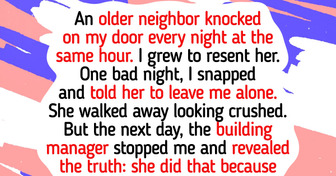Your family is a group of entitled brats and they all need to grow up and start taking care of themselves. You've helped for too long, in effect enabled their dependency. You gave them fair warning. Everyone needs to step up and get a job or a second job and pay their own way. No matter how much you give it will never be enough for these ingrates. Shame on them. You've been too nice and they've taken advangage.
I Put My Family First for Years—Then They Made Me Regret It When My Wife Was Expecting
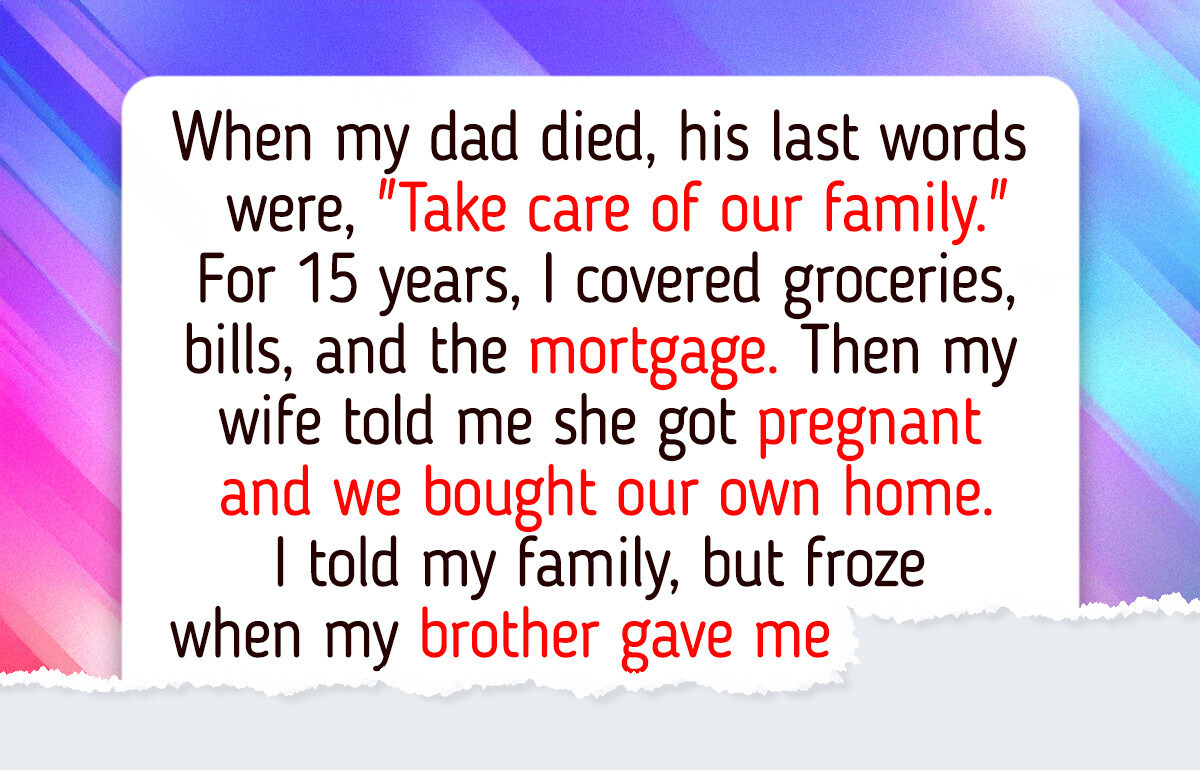
Sometimes the people we sacrifice the most for are the first ones to turn their backs on us. Evan, 34, reached out to us with a story he never expected to share. For more than fifteen years, he quietly carried his entire family. But when he finally shared with them the happiest news of his life, the reaction he got was judgment, blame, and a coldness he never saw coming. Here’s what unfolded.
The start of a long, complicated journey.
“Hi Bright Side,
I honestly don’t write things like this but I’m kinda shaking while typing, so sorry if this is all over the place.
I (34M) basically spent half my life taking care of my family after my dad passed. Like... actually taking care of them. Bills, groceries, mortgage, random emergencies, all of it. My siblings, Rowan and Jace, were still teens back then, and my mom had NO idea how to handle finances. I just stepped in because someone had to. And I kept doing it. For YEARS. Even after moving out, even after getting married. It was just ’expected.’
Anyway, fast-forward to a few months ago. My wife, Calla, finds out she’s pregnant. We’d been trying for a long time, so yeah, we cried like idiots. After that, we found this tiny but super decent house. We’re not rich, but it’s ours, you know?
So obviously I tell my family. I honestly went in thinking they’d be happy for us.”
Where the celebration died on impact.
“We get to my mom’s place, sit down, and I tell them. And I swear I didn’t even finish the sentence before Rowan gives me this face... like pure disgust. She goes, ’So what? You’re done paying for us now?’
I kinda laughed because I thought she was joking. Nope. Stone-cold. My brother jumps in with, ’Wow. Dad would’ve been disappointed.’ Like??? Who says that? My mom asks (not even gently) ’So who’s supposed to cover the mortgage now?’ No ’congratulations,’ nothing. Straight to the money.
I explain (calmly, btw) that we’re not abandoning anybody, but I can’t keep paying EVERYTHING. A baby is expensive, a house is expensive, and I’m tired of working overtime every week just to keep three other adults comfortable.
Rowan literally rolls her eyes and goes, ’Yeah, convenient timing.’ Convenient timing for WHAT??? Us finally getting pregnant after TWO YEARS of infertility stress?? Buying a house that smells like old carpet and despair???”
A family reaction that went off the rails.
“Then my mom starts crying like someone told her she had two hours to live. Saying stuff like ’I knew this day would come’ and ’So we’re nothing to you now.’ Drama level 10/10.
They didn’t even let Calla talk. She tried, and Rowan just talked over her. At one point, Jace mumbled something about me being ’ungrateful,’ which is hilarious because the dude hasn’t worked a full job longer than 6 months. Anyway. We left. It was horrible. Calla cried in the car.
The next morning, my sister posted some passive-aggressive Facebook garbage like: ’Some people forget where they came from.’ My mom didn’t contact me at all. And when we sent the gender reveal video two weeks later? Nothing. Not even a thumbs up.
At this point I don’t know if I’m crazy or what. I spent FIFTEEN YEARS helping them. I literally gave them everything I could. And the first time, THE FIRST TIME, I say ’Hey, I need to put my kid first now,’ they act like I committed a crime.
So yeah. Bright Side, I don’t know. Am I actually the bad guy here? Is it THAT horrible that I want to take care of my own family now? Did I screw up by helping them too much in the first place? I just feel... used. And honestly embarrassed that my wife saw all of it happen.”
Our readers didn’t stay quiet. They had a lot to say about Evan’s story.
- DadOfDragons42: “As a father, the moment you know a baby’s coming, your priorities shift instantly. Everything else becomes secondary. His family acting like he committed a crime just proves they never appreciated what he did in the first place.”
- Midnightbanana_pancakes: “I’m sorry, but the mother asking ’Who’s gonna pay the mortgage now?’ is WILD. Imagine hearing your son/brother is having a baby and thinking about your utility bill. That’s insane to me.”
- Lem0nAndMint: “I was raised in a big family and I know how guilt can be used like a weapon. The tears, the accusations, the Facebook post... This is emotional manipulation 101. Evan needs distance before this swallows his marriage.”
- BeHonestPls: “Unpopular opinion: Evan created a monster. When you spend 15 years being the fixer, people forget they’re supposed to fix themselves. He should’ve pulled back YEARS ago. Still, the family’s reaction was cruel.”
- SoftPretzelFan25: “I feel the worst for Calla. Pregnancy hormones + being attacked by in-laws = nightmare. If my husband’s family treated me that way, I’d be done.”
- HalfMoonHannah: “Honestly? Go no-contact. Not forever, just long enough for them to realize they don’t own you. Your baby deserves parents who aren’t drowning in drama.”
Our take: what this story really shows.
From our perspective, Evan’s situation shows how easily a family can become dependent on one person without even realizing it. Psychology research backs this up. A 2018 study on family enmeshment found that when roles and boundaries become blurred, guilt, emotional pressure and conflict rise significantly, especially when one member carries most of the responsibility. Another investigation showed that when family boundaries are too flexible or one-sided, the person who continuously gives ends up experiencing higher stress and lower well-being.
In Evan’s case, years of helping turned into an expectation, and expectations turned into entitlement. This happens often: when support becomes habitual, families may stop seeing it as generosity and start seeing it as someone’s “role.” Psychologists warn that this dynamic can lead to burnout, resentment and emotional exhaustion for the person who is always giving. This is why setting boundaries (even when it feels uncomfortable) is crucial. They aren’t a rejection; they’re a form of self-protection that keeps relationships healthy and prevents unhealthy dependence.
Evan isn’t abandoning his family. He’s finally recognizing that constant availability comes at a cost, especially now that he’s about to start a family of his own. His choice to prioritize his wife and baby it’s responsible, necessary and supported by what we know about healthy family systems.
Evan’s experience leaves a difficult question hanging in the air: how much can one person give before it becomes too much? Do you think he was wrong for finally choosing his own family’s future? Did his relatives have any right to react the way they did?
And if you’re interested in more stories about families pushed past their limits, don’t miss our article about the man who supported his relatives for years, and faced brutal revenge the moment he stopped.
Comments
Related Reads
My Parents Kicked Me Out for Getting Pregnant, Now They Want Me to Care for Them
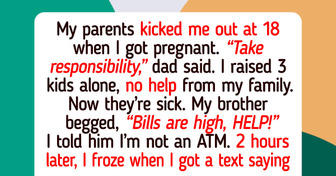
I Refused to Give Up Motherhood to Be My Mom’s Unpaid Caregiver
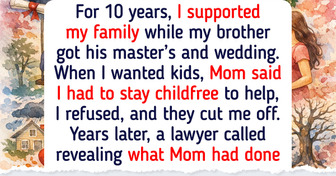
I Refused to Let My Toxic MIL Move In—Now My Husband’s Family Says I’m Ruining Their Lives
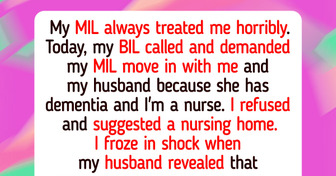
15 Workplace Stories Where Kindness and Compassion Lit Up the Entire Room
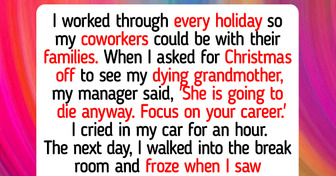
I Refused to Turn Our Romantic Trip Into a Family Vacation and Faced the Consequence

15 Stories That Show Kindness Is a Quiet Language the World Needs
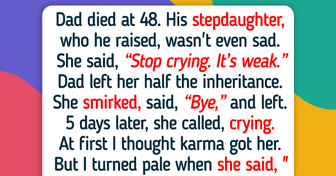
12 People Who Turned an Awkward Situation Into a Kind Gesture
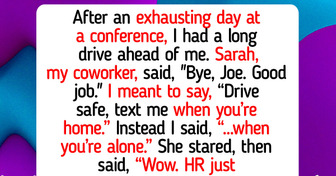
I Lost My Job to “Restructuring” and My Severance Disappeared, Then I Turned the Tables
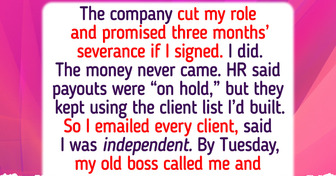
I Was About to Sign My Dream Job Offer — Until HR Broke Legal Boundaries

I Refused to Cook Vegan Meals for My Stepson—My Home Is Not a Restaurant

My Husband Promised to Stop Watching Me Through the Cameras—He Lied
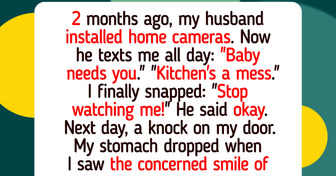
12 Stories That Prove Real Kindness Is About Actions, Not Words
